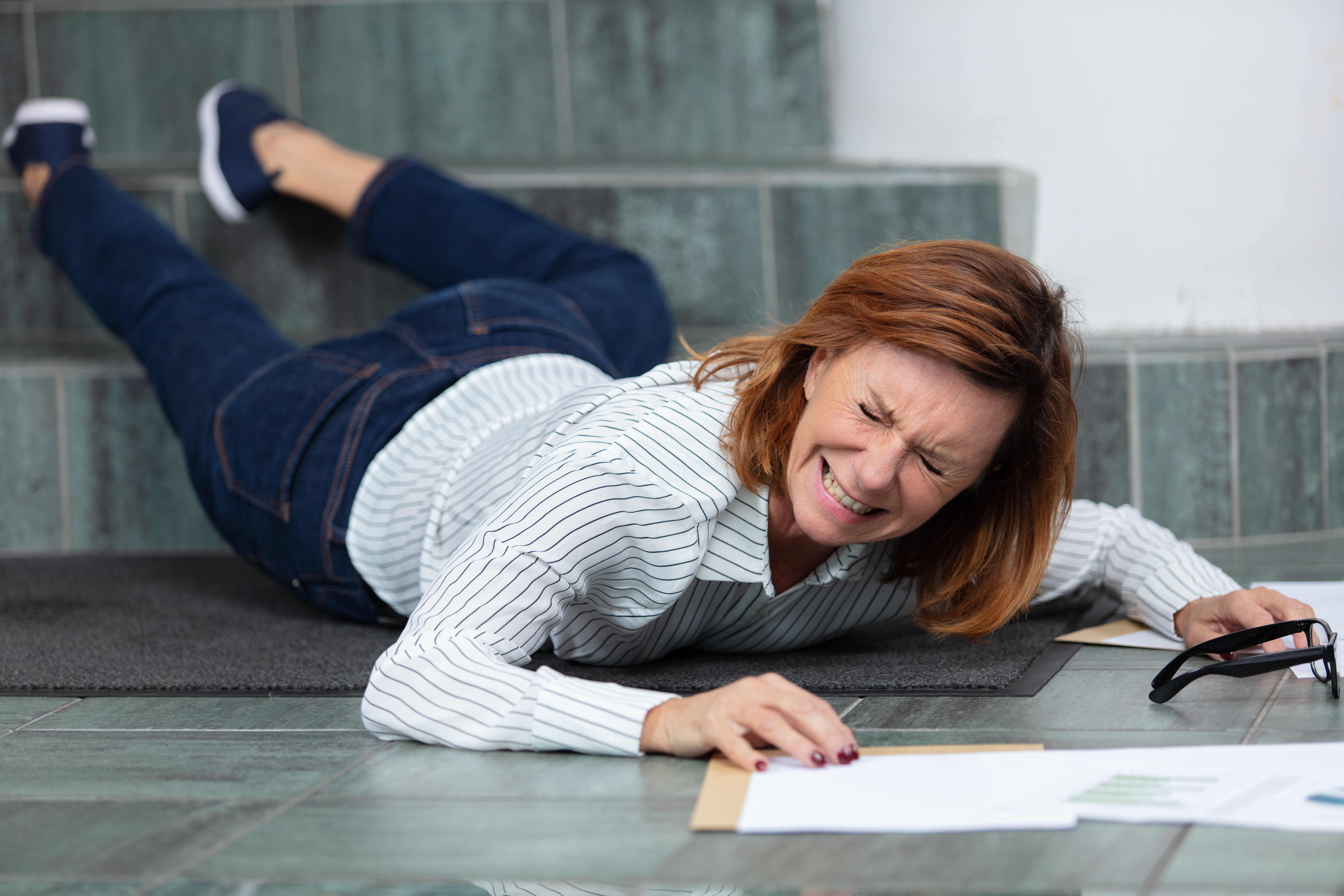Imagine the following scenario: You walk into a store, a shopping mall, or some other business establishment. Suddenly, you slip on a substance and fall to the ground, suffering a serious back or hip injury. Unfortunately, this type of incident is quite common and can result in significant harm. This is a situation that involves the legal concept of premises liability. Premises liability law is based on the presumption that it is the duty of the owner of the premises to keep the area safe for visitors. If there is evidence to show that the owner failed to take reasonable steps to keep the premises safe, there may be grounds to pursue a civil claim.

Premises Liability Law in Florida
In Florida, the law as it pertains to premises liability actions against business establishments is governed by Florida Statute Section 768.0755. For the purpose of this section, business establishments include any place where commercial activity takes place in normal course of the day – like office spaces, supermarkets, gym clubs, hospitals, theatres, gas stations, etc. Residential properties and accidents occurring therein are not covered in this section. More detailed provisions on negligence per se are outlined in the General Provisions, Part I of Chapter 768 of the Florida Code.
Under normal circumstances, in order to succeed in a premises liability suit, the injured party has to prove the following three conditions:
- A dangerous condition existed in the property which the owner was aware of;
- The owner of the property failed to repair and/or warn the visitors about this condition; and
- The injury suffered was a direct result of this condition.
Prior to 2001, “actual or constructive knowledge” was required to be shown by a premises liability plaintiff in order to claim compensation from a premises liability case. However, now the current position of law as per the latest rulings of the Florida Supreme Court is that once a plaintiff has established that the injury suffered was due to the presence of a potentially dangerous substance, a rebuttable presumption of negligence ensues automatically.
Nonetheless, property owners in Florida are required to adhere to different levels of care depending on the types of people entering their property, who will fall under one of the three possible categories: (a) invitee, (b) licensee, and (c) trespassers.
- Invitee – A plaintiff invited to the premises of the owner can either be a public invitee or a business invitee. Property owners in Florida owe the highest degree of care towards the latter, as it is the owner who has explicitly invited the person upon his property in order to work on business transactions. Level of liability extends to reasonable warning about any dangerous conditions in the property which the owner ought to know about.
- Licensee – The second highest duty of care is owed towards a licensee, who enters the premises for any social purpose which is not illegal in nature, irrespective of having any formal invitation. Fair warning is expected to be given about any pre-existing potentially dangerous conditions that the owner already knows about.
- Trespassers – Although it is normally assumed that a property owner should not care about the legal rights of a trespasser who himself has unduly encroached on his land, the basic rules of tort say that a minimum level of care is still expected from the landlord, by warning the trespasser of any dangerous condition that might exist inside the premises and prevent him from suffering unexpected injury.
Contact a Florida Slip and Fall Lawyer Today
As you can see, premises liability can become quite complex when it comes to determining the threshold of negligence that must be met to determine liability. If you or a loved one suffered a slip and fall injury that was caused by a property owner’s negligence, contact the slip & fall lawyers at Hoffman, Larin & Agnetti, PA for a free consultation or fill out the contact form to the right. All slip and fall cases are taken on a contingency fee basis, which means we only earn a fee if we win your case.





